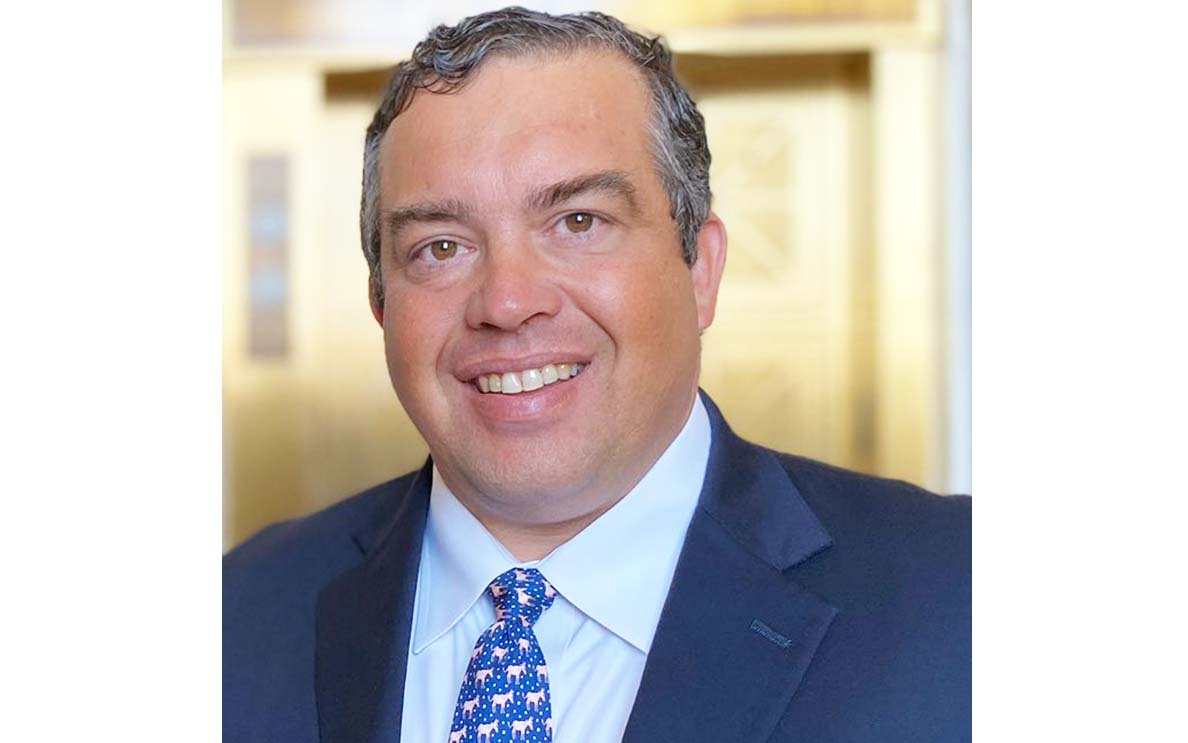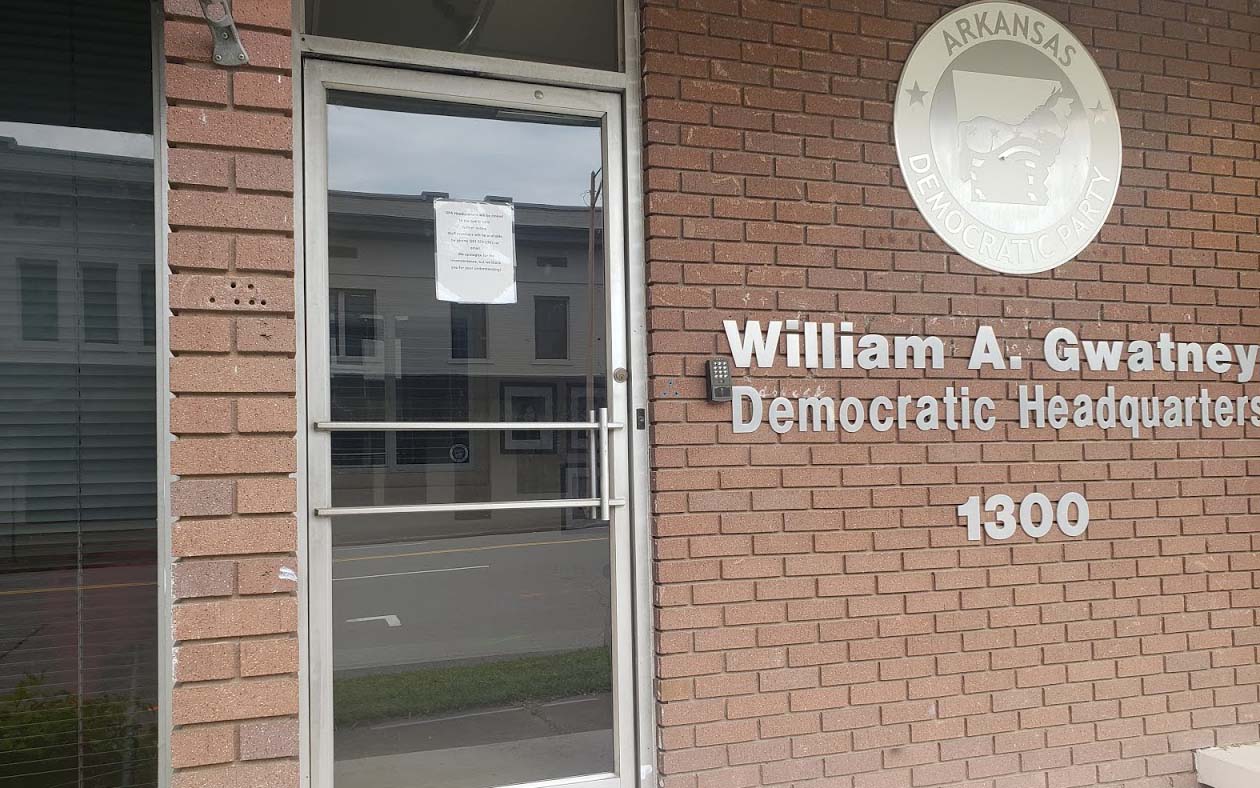Bolstered by national races, state Dems look to replicate winning formula locally
May 3-9, 2021
By Dwain Hebda
Talking to Michael John Gray these days is an exercise in the unexpected. Given the sweeping wins in November by which the Democrats gained hold of the White House and majorities in both the U.S. House of Representatives and Senate, a victory sealed by the bluing of some Southern conservative strongholds, you’d think Gray would be buoyant, touting the dawn of a new Progressive era.
But Gray is nothing if not pragmatic and has spent enough time in this game to know that federal winds don’t always ruffle local banners. As chairman of the Democratic Party of Arkansas, he claims there’s much more to aligning the state to the left than one election.
“Joe Biden did not enjoy the kind of success in Arkansas that we saw in other states,” said Gray. “But we do have an opportunity, the further we get away from Donald Trump, to educate people and reform the message and organize people.”
“What that win means nationally, it shows states like Georgia, and even though they didn’t win, getting close in North Carolina, shows Arkansans that there is hope if you will do the work to do the organizing that has never been done here. So that is a benefit.”
Gray said as a species, the rank-and-file Arkansan supports the overarching agenda items championed by the Democratic Party, but that progressives have been consistently outflanked by superior branding of the right.
“Arkansans vote for minimum wage, they vote for medical marijuana, and then vote Republican which is really an interesting juxtaposition,” he said. “It’s because of the branding from the national party. I would argue that had Bernie Sanders been a son of the South, he’d have been a lot more popular down here. His populous ideas just did not resonate in Arkansas as an aging gentleman from the Northeast.”
“We’re not necessarily a red state. We’re an unorganized state. If you have the best message but there’s nobody out there hearing it, you’re a tree falling in the forest.”
Given this, Gray said, communication becomes paramount and here, he feels the situation in Washington can play a major role in shifting the conservative tide in places like Arkansas where Democrats have been steadily losing their foothold. Whether or not that happens remains to be seen.
“Arkansas, and it has proven by how it votes on ballot measures, is progressive-minded, or at least populous-minded, on most issues,” he said. “It’s going to be about how we can frame a progressive message in Arkansas in that populous argument.”
“The Biden administration can be mindful and deliberate in the institution and start the rollout of the education and the public support around the progress he wants to see, to where we have real benefit from it. However, if it’s merely an electoral strategy and you don’t focus on what it means on the ground on a farm in Northeast Arkansas because you feel like you’ve already lost those votes anyway, it’s a non-factor for Democrats.”
Gray said if there’s an issue where Arkansas is currently on the wrong side of history, it’s regarding race. And if that sounds like a convenient political gong to pound, consider on April 15 an unidentified white supremacist pounded a hand-lettered sign into the ground at the state Democratic Party headquarters in broad daylight. The sign, tweeted out by the party, spewed a profane, epithet-laced message concerning Black Lives Matter, the tamest of which was “Stop White Genocide.”
“We just have to be honest with ourselves; [Arkansas is] not there on race,” he said. “An Obama presidency, who up until now had gotten more votes than anyone, excited a lot of people in Arkansas. We saw voters that showed up for President Obama’s first election that haven’t been back since for any party.”
“I do think that in the absence of good policy that addresses the criminal justice issues from voters from all points of view, [race] will continue to polarize our less-exposed, less-educated parts of the state and draw lines based strictly on race.”
“But I also think that the protests of 2020 and COVID-19 and then the riot at the Capitol shows that polarization. Those events will benefit Democrats in suburban/urban areas among voters in the 35- to 55-year-old age range, even as it will continue to polarize people out in rural areas.”
Gray said the defeat of Donald Trump at the polls was a keystone in building up the base, removing much of the bombastic tone that has dominated political discourse for the past four years.
“We’ve become a cult of personality to the extreme,” he said. “I remember 1980; I remember my parents watching the election returns when Carter lost to Reagan. Never in that span of time have I seen high school kids all over Arkansas riding around with candidate flags in the back of their trucks like I saw with Donald Trump. What they view today is a place where they feel like they have a home and that they’re a part of something. Unfortunately for us in rural Ama, it was Donald Trump.”
“Criminal gangs are not successful just because they want to be. It’s because people want to be a part of something and feel like they have a group of people around them. The cult of Trump was very successful. Nobody wants to duplicate that, but we do have to find a way for people to get excited about people that are running for office in a manner similar, yet very different than they got excited about Donald Trump.”
To this end, Gray is optimistic that bit by bit the progressive agenda will begin to show up in greater numbers in the statehouse and at the local level in Arkansas, provided the state machine can organize and communicate effectively. And that, he admits, is a tall order.
In late March, however, the Democratic Party voted to eliminate filing fees for Democratic candidates who are challenging incumbent GOP state legislators or where there is no incumbent Democratic legislator. The standard fee for Democratic state Senate and House candidates in 2020 was $4,500 and $3,000, respectively.
In districts where the party had previously failed to field candidates, there was a tiered fee structure, starting at about $750, party officials said. The party also lowered its filing fees for U.S. Senate, Congress, governor, other constitutional offices, and incumbent legislative seats. The highest fees for the U.S. Senate and governor at $12,000 have now been lower to $5,000.
To date, those lower fees have attracted Little Rock business owners James “Rus” Russell III and Xayprasith-Mays into the 2022 gubernatorial race. The Democratic Party’s political neophytes from the Democratic Party will face announced GOP candidates Attorney General Leslie Rutledge and Sarah Huckabee Sanders, who has already raised over $5 million. Sanders is the former White House press secretary for ex-President Donald Trump and the daughter of former Arkansas’ last Republican governor, Mike Huckabee.
“We’re going to have a good governor’s race,” he said. “Where we have an opportunity, we have to beat that drum, whether we win or lose. Our path forward is understanding that sometimes you have to hit bottom before you can get better. And we have had some great Democratic leaders, great Democratic workers, great Democratic campaigns, but we don’t necessarily have the infrastructure and the organizing in the state.”
“Our opportunities are to run as many people we can at a state legislative level talking about the things that matter. We have got to continue to hammer that if you want to live like a Republican, you’d better vote Democrat and the cognitive dissonance between voting for minimum wage increase and voting for people that are going to cut the taxes for the wealthiest of the wealthy.”
“I think the 35- to 55-year-old suburban crowd that for economic reasons voted Republican have now lived through a Trump presidency, the insurrection at the Capitol, the downplay of the seriousness of COVID-19 coming from GOP leaders and the lack of a plan and real handling and taking it seriously. Given that, I think you have a real opportunity in suburban areas to continue the national trend here of votes going more and more Democratic,” Gray concluded.
PHOTO CAPTION: (All Photos by Daily Record staff)
The Arkansas Democratic Party's state headquarters on Capitol Avenue remains closed after it was defaced with racist signs earlier this month.




